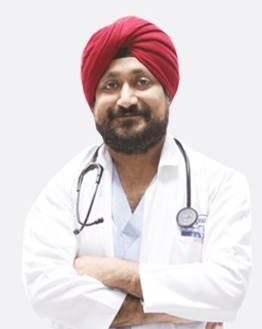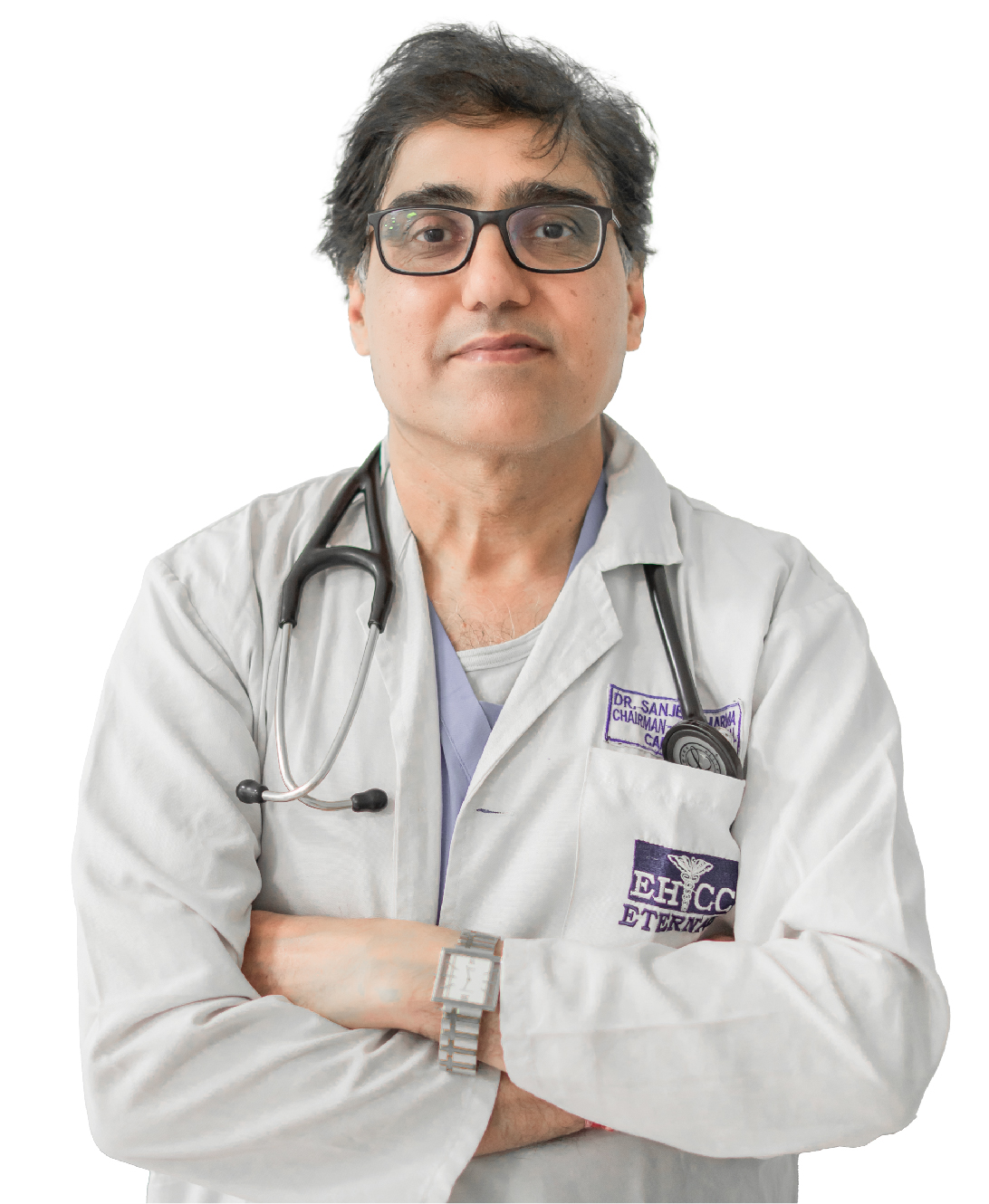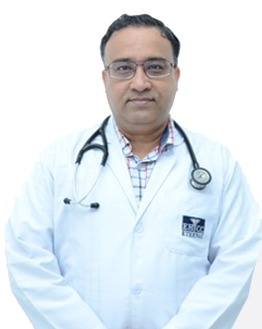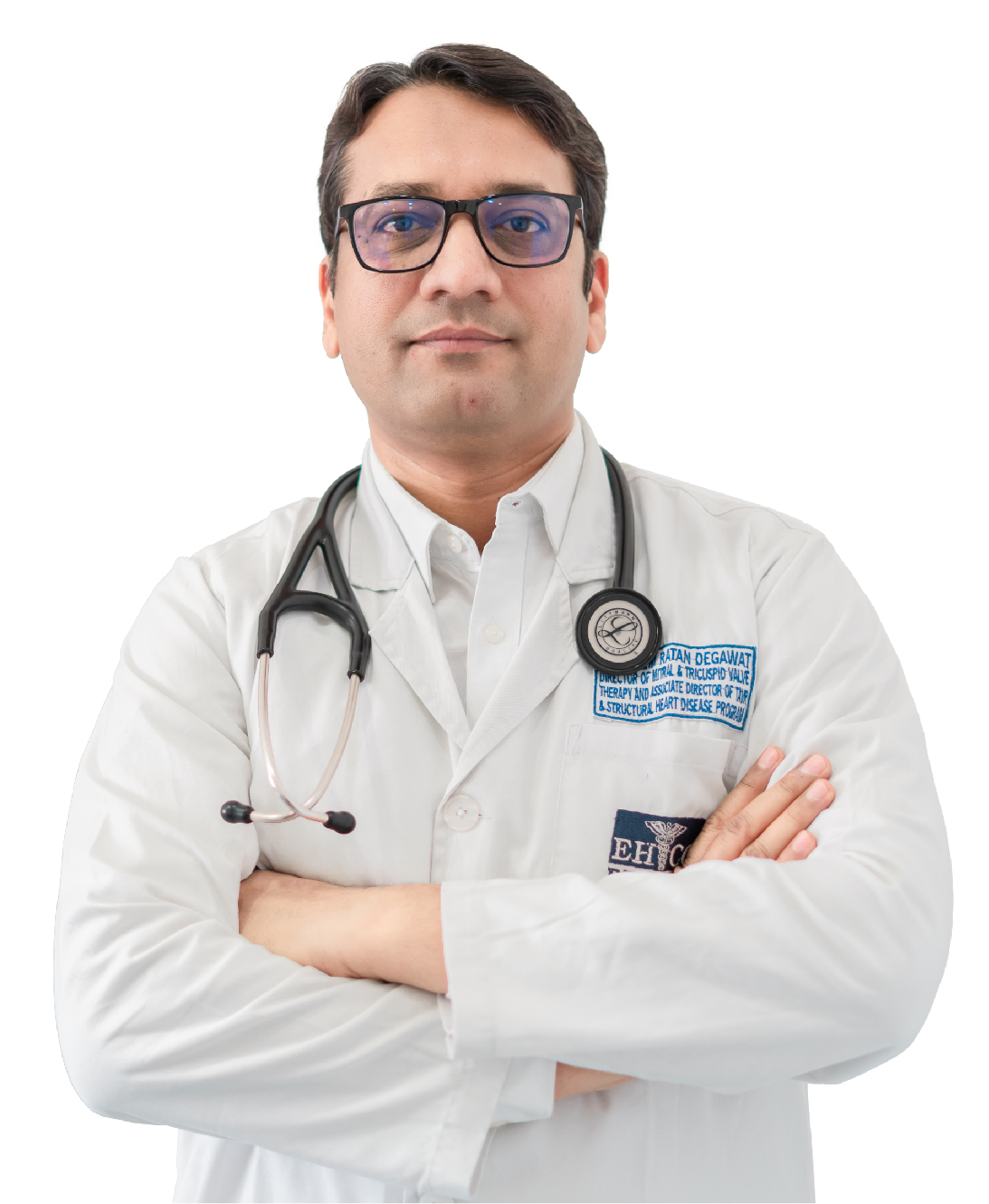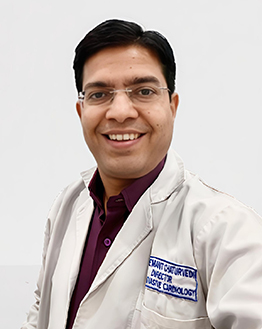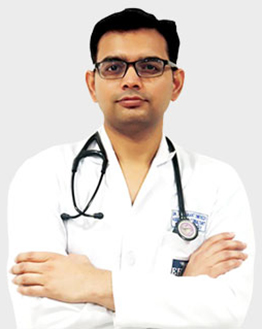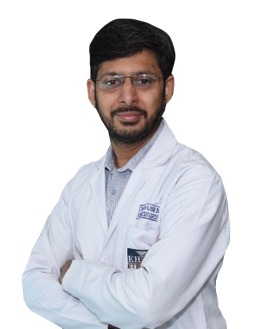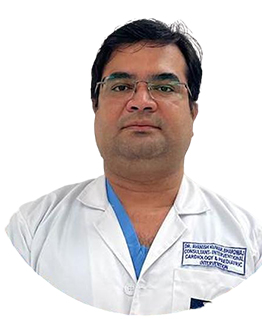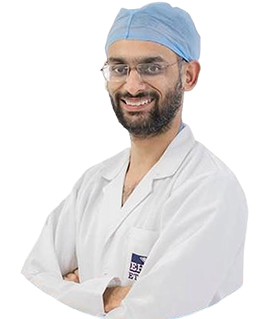Eternal Hospital heart team has completed over 4500+ TAVI procedure collectively, with utmost safety
Eternal Centre For Valve & Structural Heart Disease
- TAVI
- TMVR
- Mitraclip

TAVI/TAVR@Eternal Jaipur: A paradigm shift in the management of patients with aortic stenosis
Aortic stenosis and aortic regurgitation is quite common heart problem in patients about 60 years of age. Aortic Stenosis is a chronic obstruction in the aortic valve that hinders the normal flow of blood whereas in Aortic regurgitation there is a backward flow of blood due to the inability of the valves to open or close properly. A hospital based echocardiography study suggested that 5 to 8 per cent of the patients presented aortic stenosis.
3 signs that you need to look out for:
Aortic stenosis is majorly recognized by its three primary symptoms. These are:
- Exertional chest pain - This is a result of elevated myocardial oxygen demand, which is caused by the enlargement of the pumping chamber of the heart, owing to the inability of the blood to flow freely.
- Dizziness and syncope - This is caused by the deficiency of oxygenated blood which is caused by the inability of your circulation system to meet the demands of the rest of the body.
- Breathlessness due to heart failure - This is likely to happen during the end stage of the stenosis when it has aggravated severely. It is an indication of poor prognosis which usually happens due to the lack of proper treatment.
The patient may not feel any major symptoms initially and these develop over time. The severity of the symptoms also varies from one patient to another depending upon the extent of damage. In some cases, the problem may have advanced to a very critical stage when the symptoms finally start becoming evident. If we speak in terms of the survival rates,
- Mean survival after angina - 5 years
- Means survival after the onset of syncope - 3 years
- Means survival after the onset of heart failure - 2 years
Whether the patient is experiencing the symptoms or not, surgery is a must for treating severe aortic stenosis. Until a few years back, the primary treatment option for patients with aortic stenosis was surgical aortic valve replacement (SAVR), which was carried out by making a large incision on the patient’s chest. This allows the surgeons to access the diseased aortic valve, which was then removed and replaced with a new prosthetic valve. Although SAVR has been quite successful. Nearly 30% of patients with severe aortic stenosis are not eligible for the procedure going to various reasons like comorbid conditions, advanced age and previous surgery.
TAVR or transcatheter aortic valve replacement is a minimally invasive procedure that uses cardiac catheterization technique to replace the damaged valve. The procedure has proved to be a boon for many patients who earlier had no hope of survival, or, were not eligible to undergo SAVR. TAVR is considered to be a gold standard treatment for such patients with inoperable or high risk AS. Clinical trials have also suggested that TAVR is equivalent to SAVR in patients falling in the intermediate or low-risk category.
Here are 3 advantages of TAVR:
- Minimal invasion
- Faster recovery
- Reduced risk of mortality, stroke and need for dialysis
It is worth noting that, owing to the fact that the procedure is minimally invasive, there is no need of using general anaesthesia.
Eternal Hospital (EHCC) Jaipur is the first hospital in the state of Rajasthan to perform this path-breaking and revolutionary procedure under the guidance of globally recognized expert Dr. Samin K Sharma who has performed over 3000 procedures to date.
Our recent TAVR interventions include the case of Ms. Kanchan Bhatia, who successfully underwent TAVR procedure performed by Eternal expert Dr. Amit Kumar Chaurasia, Director-TAVI & Structural Heart Disease Program- Cardiology. Dr Chaurasia has performed more than 700 TAVR procedures until now, he is the first proctor from India and has been actively training cardiologists in India as well as abroad.
Highly experienced structural heart team under the guidance and mentorship of Dr Samin Sharma Chief Interventional Cardiologist and Dr Ajeet Bana – Chairman Cardiac Sciences, the hospital has performed the highest number of TAVR procedures in Rajasthan which has made Eternal Hospital as the preferred and first choice of patients for non-surgical TAVI procedures.
TAVI
What is TAVI?
TAVI is the most recent method of treating patients with aortic stenosis. Aortic valve is changed without opening the chest through key hole surgery done though the artery of the leg just like angioplasty is done.
Can TAVI be done in previously surgically replaced valve?
Previously surgically replaced valve could either be metallic valve or tissue valve. If the previous valve is a tissue valve then TAVI can be done.
What is TAVI valve made of?
TAVI valve is a biological tissue valve.
Will the patient be put on heart lung machine?
No the patient is not put on heart lung machine.
Will general anaesthesia be given to the patient?
95% of the time general anaesthesia will not be given to the patient.
How many days will the patient be in the hospital?
Immediately post TAVI patient is shifted to ICU. Next day the patient is assessed and if everything is good, the patient is made to walk and observed and if everything is good he/she is shifted to room. The patient is observed for one more day and then can go home.
What are the complications during the procedure?
5-10% of the patient may require permanent pacemaker, 1-2% patient may develop stroke. There can be bleeding from the groin from the catheter is introduced. Rarely aorta can rupture and death can occur.
Will my activity be restricted post TAVI?
TAVI is done to treat and improve your condition. In no way your activity will be restricted or delayed. You will be able to do all your activity right after your discharge and will feel much better.
Mitraclip
What is mitral valve disease?
It is one of the valve among the four major valves in the heart that stops back flow of blood from left atrium to left ventricle. The disease of mitral valve is called as mitral valve disease. If the valve leaks then it is called as mitral regurgitation and if it becomes stenosed then it is called as mitral stenosis.
What is the treatment of mitral stenosis?
In young patients, where there is no calcium deposit on the valve and the left atrial appendage is free of clot balloon dilation of the valve called balloon mitral valvotomy (BMV) can be done. If the patient has calcium deposit on the valve and the left atrial appendage has clot then mitral valve replacement surgery is recommended. Mitral valve replacement can be done either with metallic mechanical valve or with tissue bio prosthetic valve. Your doctor will advise the best that you require.
What is the treatment of mitral regurgitation?
Mitral regurgitation can be post infection either in early or late age. It can also functional which if due to structural abnormality in valve apparatus. If it severe rheumatic MR then surgical open heart mitral valve replacement is the treatment of choice. However, if it is functional then mitraclip can be done.
Who are the ideal patients?
Patients who have functional MR and the valve is suitable for mitraclip for mitraclip by TEE and 3D ECHO; and is in heart failure despite optimal medical therapy and refused for open heart surgery due to other co-morbidities are the ideal patients.
How is mitraclip done?
Mitraclip is done under general anaesthesia. The chest is not open and the procedure is doen through the groin. Most patients will require single clip, however, some patients may require two clips. Post procedure the patent is shifted to ICU and recovery monitored.
Will my heart failure symptoms improve after mitraclip?
Mitraclip is done to improve symptoms of the patients. After discharge most of the patients feel much better and are able to continue their day to day activity.
Is mitraclip a safe procedure?
This procedure is done at centre of excellence by doctor who is an expert in this procedure. However, one should keep in mind as with any other procedures this procedure also carries some risk.
TMVR
What is TMVR?
This procedure is done for patients who have dysfunctional tissue bio prosthesis mitral valve replacement and is symptomatic with heart failure despite optimal medical therapy. It is done thought he groin and generally the patient is discharged in a day or two. This procedure carries lesser risk than surgery and recovery is also faster.


